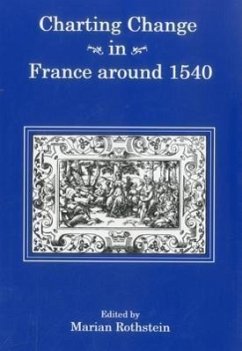During the decade or so surrounding 1540, there is a change in French thinkers' assumptions about themselves, their country, and their place in the world. This evolutionary change is examined from multidisciplinary points of view, providing readers with tools for interpreting, defining, and understanding it in a broader sense. The character of the change being explored here is neither rupture nor revolution. It is a displacement of center that contributes to, or in some cases actually creates, a changed relation between past and mid-sixteenth-century present as well as between that present and attitudes toward the future. During the period around 1540, French thinkers and French perceptions opened to the notion that what-had-never-been now could be, what for lack of a better term, called the new, often accompanied by a nationalism proclaiming it for France. This brings a fresh understanding of what it means to be French - in language, in music, even in food. It brings an expansion of categories to be treated as part of the French economy, like Canadian fish, or more surprisingly, leisure, or music. Marian Rothstein is Professor of French at Carthage College.
Hinweis: Dieser Artikel kann nur an eine deutsche Lieferadresse ausgeliefert werden.
Hinweis: Dieser Artikel kann nur an eine deutsche Lieferadresse ausgeliefert werden.







